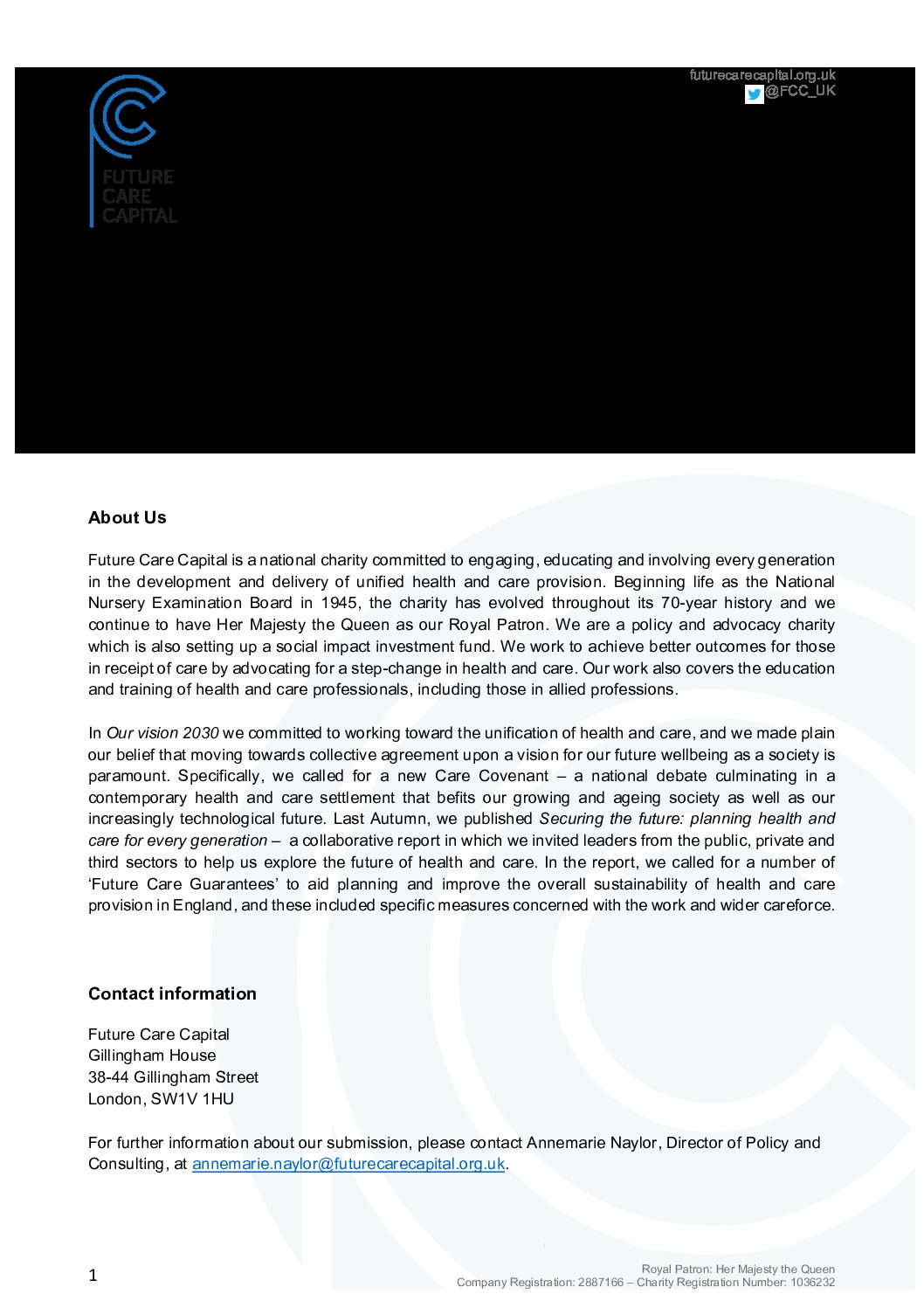
policy
Draft Health and Care Workforce Strategy Consultation

For the first time in almost twenty-five years, a workforce strategy for England’s health service is under development. Its publication is anticipated this Summer and is to be welcomed given the recruitment and retention challenges facing health and care providers – as highlighted in recent reports from the National Audit Office and the Care Quality Commission.
Comments on the draft strategy were invited via two consultation exercises – one coordinated by Health Education England which focused upon healthcare professionals, and a parallel work stream concerned with the workforce underpinning the provision of adult social care services, hosted by the Department for Health and Social Care in conjunction with Skills for Care.
It is a lengthy document and helpfully goes into considerable detail, however it focuses overwhelmingly upon the needs of our health services and associated providers. If there is to be a truly ‘joint’ workforce strategy, greater emphasis needs to be placed upon the social care sector – including greater acknowledgement of social care within the six principles that underpin the strategy. In addition, it should acknowledge the vitally important role played by the growing number of unpaid carers in our communities and provide for their distinctive training and skills needs.
In our submission, we note the potential for our health and care sectors to lead the way in staff friendly employment practices which could bolster their comparative attractiveness and support improvements in recruitment and retention. Steps to achieve this range from the promotion of flexible working opportunities through the championing of a greater ‘work-life-care balance’ to support for healthy workplaces. Focusing on staff development and new career roles is also key, including investment in flexible training opportunities to fit around busy workloads, and the development of new staff roles, including those that embrace new technological developments in areas such as data analytics.
When considering workforce planning, we need to remember that without a clearer understanding of how services are likely to be delivered in the years to come, it will be difficult to determine the roles required and the numbers and locations in which they are needed. Further action is needed to articulate a clear vision of the future of health and care provision which not only embraces innovation and new delivery models, but also recognises the role of a range of societal actors in regard to their contribution to supporting the health and care needs of communities. To achieve this, forward planning needs to consider the built environment, including adaptations and digital infrastructure development to better enable independent living for longer, and the scope to attract and/or mobilise the people that will be needed to deliver them. It should also recognise the potential to better empower local communities and businesses to respond to need at the local level and any training or skills development programmes which may serve to encourage.
Beyond formal workforce planning, sustainability demands investment in our health and care infrastructure today to underpin the healthy and caring economies we want to see tomorrow.
